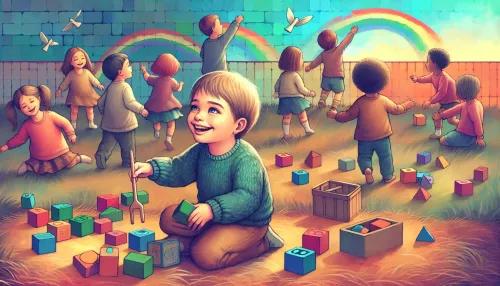
Inclusive Playdate Success: Tips for Fostering Positive Social Interactions with Autistic Children

In the realm of inclusive playdates, creating a positive and supportive environment is crucial for the social growth and well-being of autistic children. It's essential to understand the significance of fostering inclusive experiences and offer valuable insights for ensuring successful playdates that cater to the needs of all participants.
Preparing Social Narratives and Role-Playing Scenarios Prior to the Playdate
A key aspect of facilitating successful playdates for autistic children involves proactive preparation. Crafting social narratives and role-playing scenarios prior to the playdate can significantly enhance the child's confidence and comfort in social interactions. These narratives provide a structured framework for understanding the dynamics of social engagement, effectively preparing the child for various scenarios they might encounter during the playdate. HorizonsMind Blog advocates for parents and caregivers to integrate such preparatory activities into their pre-playdate routines, enabling autistic children to navigate social situations with greater ease.
Setting Clear Communication Expectations for All Participants
Effective communication is fundamental to the success of any playdate, especially when autistic children are involved. As such, clear communication expectations must be established for all participants. This entails outlining guidelines regarding turn-taking, active listening, and non-verbal cues to ensure that everyone can effectively engage with one another. Emphasizing the importance of transparent communication frameworks that accommodate the unique communication styles and preferences of autistic children while promoting meaningful interactions with their peers.
Providing Sensory-Friendly Games and Activities
Creating a sensory-friendly environment forms the cornerstone of accommodating autistic children during playdates. Incorporating sensory-friendly games and activities not only ensures an inclusive experience but also cultivates an enriching and enjoyable atmosphere for all involved. As we encourage the inclusion of tactile, visual, and auditory stimuli that align with the sensory preferences of autistic children, fostering an environment where sensory sensitivities are respected and catered to.
Encouraging Peer Understanding and Empathy through Education
Education serves as a powerful tool in nurturing peer understanding and empathy towards autistic children. By imparting age-appropriate information about autism and emphasizing the importance of empathy, parents and caregivers can foster a supportive network of peers who embrace diversity and demonstrate understanding towards their autistic friends. We advocate for ongoing education initiatives aimed at cultivating empathy and promoting inclusivity within social circles, thereby contributing to meaningful and lasting friendships for autistic children.
Utilizing Break Cards and Quiet Zones as Needed during the Playdate
Recognizing and respecting individual needs is paramount during inclusive playdates. To support autistic children in managing potential sensory overload or anxiety, utilizing break cards and establishing quiet zones offers much-needed respite when necessary. These tools empower children to self-advocate for their well-being while reinforcing the importance of self-regulation within social settings. HorizonsMind Blog underscores the significance of incorporating such supportive measures, ensuring that playdates remain conducive to positive social interactions while acknowledging and accommodating individual needs.
In conclusion, by implementing these strategies, parents, caregivers, and peers can actively contribute to fostering inclusive playdate environments that celebrate diversity and promote positive social interactions for autistic children. At HorizonsMind Blog, we remain committed to advocating for inclusive practices that empower all children to thrive in social settings, furthering our dedication to promoting meaningful connections within diverse communities.


